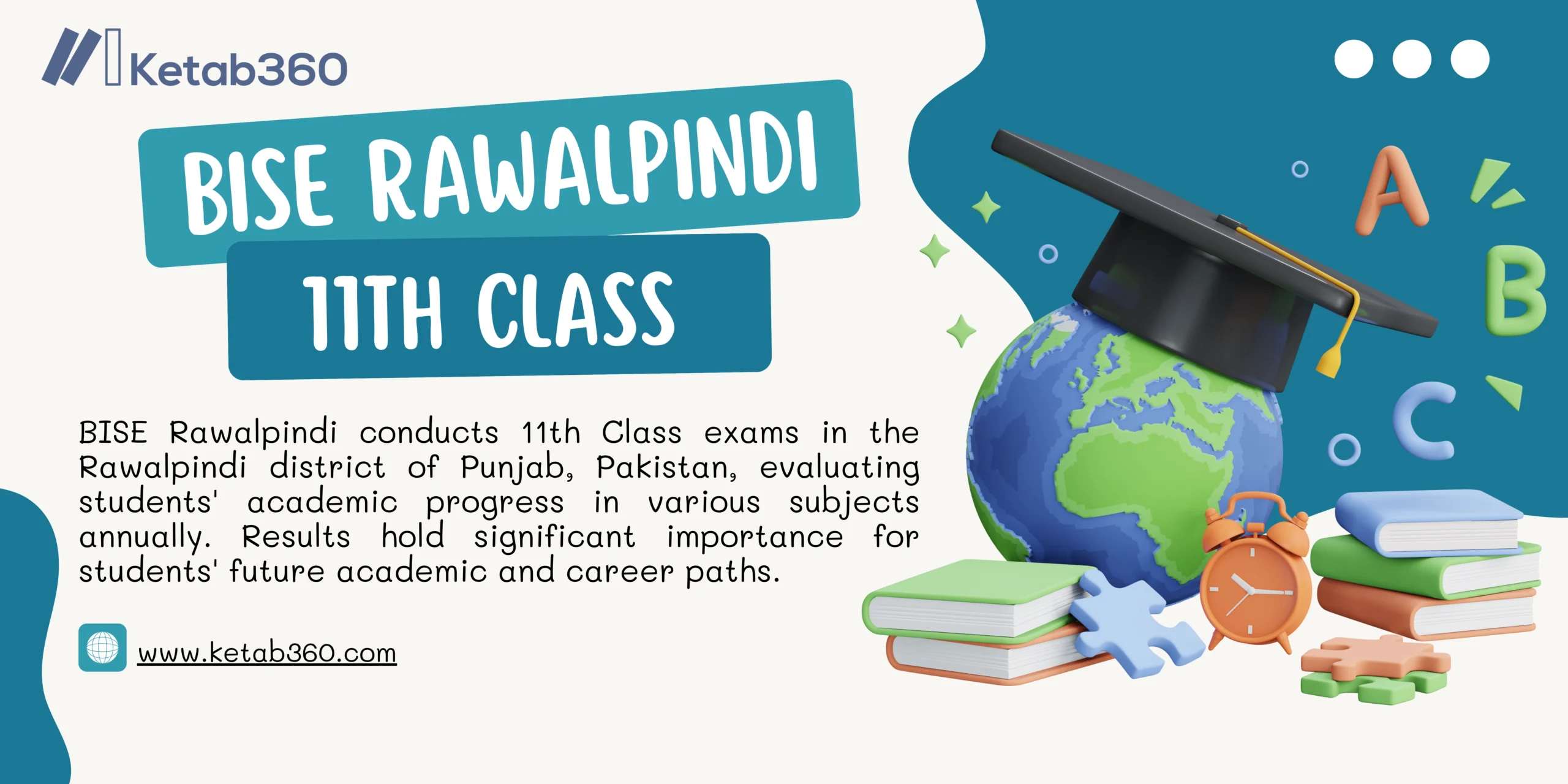Introduction:
Education is the key to progress and prosperity, and Pakistan recognizes the importance of nurturing its young minds through quality education. The Board of Intermediate and Secondary Education (BISE) Rawalpindi holds a significant role in this endeavor by conducting the 10th class examinations, which are a pivotal point in a student’s academic journey. These examinations not only mark the culmination of secondary education but also serve as the gateway to higher education and future career opportunities. In this comprehensive article, we explore the significance of BISE Rawalpindi 10th Class examinations, the examination process, their impact on students’ lives, and the board’s role in fostering academic excellence.
The Role of BISE Rawalpindi:
BISE Rawalpindi is one of the prominent educational boards in Punjab, Pakistan. Established to regulate and conduct examinations at both the intermediate and secondary levels, the board plays a vital role in shaping the education system in the region. Operating under the Punjab Boards of Intermediate and Secondary Education Act 1976, BISE Rawalpindi is responsible for formulating examination policies, developing curricula, and ensuring the fair and transparent conduct of examinations.
Importance of 10th Class Examinations:
The 10th class examinations are a crucial milestone in a student’s educational journey for several compelling reasons:
Gateway to Higher Education: The results of the 10th class examinations are a determining factor for admission to colleges and universities. Strong performance in these exams opens doors to renowned educational institutions and various fields of study.
Academic Specialization: Students are required to select specific streams or disciplines, such as science, arts, commerce, or computer science, during the 10th class examinations. These choices significantly impact their future academic and career paths.
Scholarship Opportunities: Exceptional performance in the 10th class exams can lead to scholarships and financial aid programs, easing the financial burden on students and promoting higher education.
Personal Growth and Skills Development: Preparing for the 10th class examinations equips students with valuable skills such as time management, discipline, critical thinking, and problem-solving, which are essential for success in higher education and life beyond.
Examination Process:
The examination process for the 10th class is designed meticulously to ensure fairness, transparency, and accuracy in assessing students’ knowledge and skills. The process encompasses several key steps:
Registration: Students wishing to appear for the 10th class examinations must register with BISE Rawalpindi within the designated registration period. The registration process includes providing necessary documents, including identification, previous academic records, and a passport-sized photograph, along with the examination fee.
Date Sheets: Prior to the examination period, BISE Rawalpindi releases date sheets detailing the schedule for each subject’s examination. These date sheets enable students to plan their study routines and revision strategies effectively.
Examination Centers: BISE Rawalpindi designates examination centers across the region where students are required to appear for their respective exams. These centers are chosen strategically to ensure convenience and a secure environment for the students.
Examination Format: The 10th class examinations consist of both theoretical and practical components, depending on the subject. Theoretical papers are conducted in a written format, while practical exams are held in designated laboratories or workshops.
Evaluation Process: After the completion of the examinations, answer scripts are collected and sent for evaluation. BISE Rawalpindi engages experienced teachers and examiners to assess the students’ responses. The evaluation process is conducted confidentially to ensure impartiality.
Result Declaration: Following the evaluation process, BISE Rawalpindi announces the results of the 10th class examinations. Understudies can get to their outcomes on the web or through their separate instructive foundations. The results are typically available within a few weeks after the conclusion of the examinations.
Impact on Students:
The outcomes of the 10th class examinations have a profound impact on students’ academic and professional lives:
Higher Education Opportunities: High scores in the 10th class examinations improve a student’s chances of securing admission to prestigious colleges and universities. Top institutions often have rigorous admission criteria, and strong results can set candidates apart from the competition.
Specialization and Career Path: The streams or disciplines chosen in the 10th class examinations guide students toward specific fields of study and potential professions. These choices significantly influence their career paths.
Scholarships and Financial Aid: Exceptional academic performance opens doors to various scholarship programs and financial assistance opportunities. These support systems alleviate the financial burden on students and encourage them to pursue higher education.
Motivation and Confidence: Excellent results in the 10th class exams boost students’ confidence and motivation to excel in their studies. It validates their hard work and encourages them to aim for academic excellence.
Parental Expectations: In Pakistani culture, parental expectations often center around academic achievements. The 10th class results can influence these expectations and contribute to the family’s aspirations for the student’s future success.
Measures for Fairness and Transparency:
BISE Rawalpindi takes several measures to ensure fairness and transparency in the examination process:
Secure Examination Centers: The board designates examination centers that adhere to strict security protocols to prevent any unfair practices during the exams.
Confidential Evaluation: Answer scripts are evaluated confidentially by experienced teachers and examiners, ensuring an unbiased assessment of each student’s performance.
Grievance Redressal: BISE Rawalpindi offers a mechanism for students to address grievances related to examination processes, including rechecking and re-evaluation of answer scripts.
Standardized Grading: The board employs standardized grading systems to ensure consistency in evaluating students’ performance across different subjects.
Conclusion:
The BISE Rawalpindi 10th class examinations represent a significant milestone in a student’s educational journey. As students prepare to embark on their higher education and professional careers, these examinations serve as a testament to their academic achievements and potential for success. BISE Rawalpindi’s unwavering commitment to maintaining fairness, transparency, and high educational standards ensures that students’ efforts are duly recognized and rewarded. With its dedicated approach to education, the board continues to pave the way for a generation of educated and empowered individuals who will contribute positively to the progress and prosperity of Pakistan.






